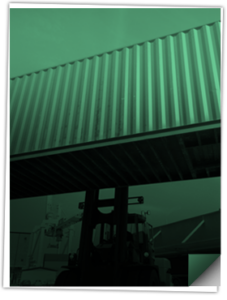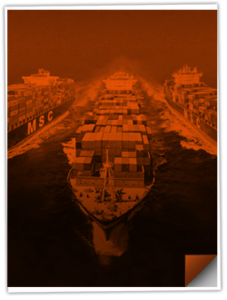Featured Headlines:
UFLPA Postal Code Requirements Posted
Testing Your EPA Compliance GPA
Strumming the New Currency Exchange CATAIR Strings
Airline Demand Supine and Bland
UFLPA Postal Code Requirements Posted
- The Uyghur Forced Labor Prevention Act (UFLPA) Region Alert enhancement will be deployed in Automated Commercial Environment (ACE) on March 18, 2023.
- This will provide importers with an early notification that their goods may have been produced in the Xinjiang Uyghur Autonomous Region (XUAR).
- Additionally, the UFLPA Region Alert will require three new validations to be submitted into ACE in specific applications:
- Users will be required to input the Postal Code.
- Users will receive an error message if the provided postal code is not a valid Chinese postal code.
- Users will receive a warning message when a postal code associated with the XUAR region is provided.
- If an ACE user receives a warning message, they should notify the importer of the rebuttable presumption. Importers may request an exception to the rebuttable presumption from U.S. Customs and Border Protection (CBP) during a detention, after an exclusion or during the seizure process. Many couples are looking into qualification for “rebuttable presumptions,” but we digress!
- Officials will not release a list of Chinese postal codes or a list of postal codes in the XUAR region, as “importers have an obligation to conduct due diligence on their supply chain.”
- For additional information regarding the above, check out the following resources:
- As always, feel free to reach out to our compliance experts if you have any questions!
Testing Your EPA Compliance GPA
- The Environmental Protection Agency (EPA) has found a significant increase in the number of pesticide devices that are non-compliant with the Federal Insecticide, Fungicide and Rodenticide Act (FIRFA) currently being sold or distributed in the US.
- As a result of the recent spike, the EPA issued a compliance advisory reminding importers about the import regulations in producing, distributing or selling pesticide devices.
- Importing pesticide devices is subject to strict statutory and regulatory requirements; and failure to comply with FIRFA requirements may result in the following: a hold or denial at the port of entry by CBP; the issuance of SSURO; seizure of goods; and/or assessment of civil/criminal penalties.
- Fortunately, at least the EPA has not threatened to use the products in question themselves on the importers in question!
- Click here to read the full notice from CBP (CSMS #55388253).
Strumming the New Currency Exchange CATAIR Strings
- On March 7, CBP advised the trade community that the “ACE Currency Exchange Rates” have been posted under the CBP and Trade Automated Interface Requirements (CATAIR) section of the agency’s website.
- The new Chapter supports the migration of the Currency Exchange Rates functionality from the Automated Commercial System (ACS) to the Automated Commercial Environment (ACE).
- CBP announced that the deployment date for the Certification environment (CERT) is March 23; and the production environment (PROD) for this new functionality will be deployed on April 23.
- For additional details on the transition, please click here.
Steamships Gassy Over Chassis
- A group representing 11 ocean carriers has appealed a recent ruling by the Federal Maritime Commission’s (FMC) chief administrative judge indicating that container lines violate the US Shipping Act when they mandate which chassis must be used in merchant haulage agreements with cargo owners.
- The key to understanding the ruling and the court battle is knowing the difference between “carrier haulage” and “merchant haulage.” Simply put, carrier haulage refers to door-to-door steamship moves and merchant haulage obligates the steamship for port-to-port only. Phew, glad we got THAT cleared up!
- According to the new FMC rule, ocean carriers may dictate which chassis provider must be used on carrier haulage agreements, but cargo owners and truckers have the ultimate decision on chassis usage in merchant haulage agreements.
- In lieu of the obvious, very few shippers were skipping, whistling, and doing Snoopy dances when they were obligated to pay heavy fines for demurrage and per diem because ocean carriers were out of chassis, could not find boxes, required empties to go one place and chassis to another and/or disallowed empty returns altogether. Talk about a rigged game!
- For the steamship side of the argument, we received no responses to 200 requests for comment…! Just kidding; but the argument seems to be that ownership of the empty container should convey control of the chassis even if it is being provided by a third party. Unofficially, a few high-ranking officials also said, “making more money rocks.”
- Low US port volumes combined with new chassis coming off assembly lines will result in an equilibrium in the market in which equipment shortages are no longer an issue by midyear, chassis providers and trucking executives believe and concede. However, just because the pain is gone does not mean the pain will not return.
- This chassis cow is already out of the chassis barn, farmers! Truckers and shippers, no longer willing to rely exclusively on chassis pools to supply equipment for all markets, began acquiring their own chassis to lessen their dependence on fragile supply—today and tomorrow.
- We adore our steamship friends, but we hope the FMC stands strong this time!
Labor Pains for Trucking
- A sizable drop in freight demand from last year’s record volumes has led to the loss of 84,300 US transportation and warehousing jobs between January and February, according to the US Bureau of Labor Statistics (BLS).
- Job losses for trucking and warehousing stood at just above 15,000 in February.
- Interestingly, overall transportation employment was still up 1.9% year-over-year (YoY), and trucking jobs were still 2.2% higher YoY. The real concern is the trend line.
- Unadjusted for-hire truck transportation employment—a number that represents actual employees and actual jobs—hit its peak in October 2022 at 1.62 million employees. That number fell to 1.58 million in February, a 2.7% drop over that period.
- Regional trending is expected to be much more variable than usual with Southern California reeling from a market double-whammy. Import volumes may be tumbling, but at least shippers are diverting cargo to Canada and the East Coast! Youch!
- Truckload contracts out of Southern California were down over 20% YoY in February.
- A whammy is an evil spell, hex, or curse, and it was Al Capp who brought us the “double whammy” in his famous cartoon, Li’l Abner, which ran from 1934-1977. Now, who’s ready for trivia night? You are studious readers!
Flu Grade Food Trade
- Just when this little piggie ought to be skedaddling to market, he got red blotchy skin, a very high fever AND began to cough. All too frequently, this little piggie and many of his chubby brothers, sisters and chums from middle school end up dead.
- China has been battling African Swine Flu, with some experts claiming that half of their pork production has been lost. There is sure to be some porky export growth, but the industry is closely watching drifts, droves, litters, passels, teams, sounders and singulars…good heavens, these are all names for groups of pigs depending on age, gender and presence/lack of presence of what God gave the pig as a baby!
- Not to be outdone, Avian Influenza—having already run through America like a chicken without her noddle or noggin on—has been ravaging flocks in Europe for months. As one might expect, prices for eggs, chicken and turkey have soared.
- Unfortunately for Europe and the US, winter break is almost over for wild birds, and they will likely bring more flu with them upon their return from sunny vacations.
- The symptoms for Avian Influenza involve sneezing, but they are nothing to sneeze at! It typically starts with sneezing, leads to coughing and ends in sudden death.
- After so much gruesome food news, please accept this intermezzo: In 18th century Georgian England, sneezing became a status symbol, as those zany Brits felt sneezes both cleansed the body and invigorated the mind. Before you knew it, they began to sneeze as a sign of superior disapproval. Well, bless their little hearts (and noses)!
- Time to outbid by more than a quid the futures for squid amid the skid for fishes in warm waters turbid. Our rhymes please forgive, but the magical squid bodes and bids well amid the globe’s warming grid.
Airline Demand Supine and Bland
- After Covid, look at passenger travel stats for future air cargo bargains. Okay, but why, Shapiro!
- Thanks for asking, dear readers. We sometimes forget that half of cargo capacity comes from passenger aircraft and we also might not realize that routings to more “exotic” destinations are tremendously faster and more reliable when passenger traffic returns. Let’s not forget these things again, gang!
- While the demand trend line for air passengers has steadily increased since 2020, total December 2022 enplanements (which sounds like flying prisons to us) were down about 1.5% from November. The total was also roughly 6% lower than December 2019.
- Fortunately, for those of us routing international cargo, international passenger flights were only down about 4% from the all-time high for US airlines reached in October 2019.
- In news of a snooze, global air cargo demand has been almost exactly flat in the last four weeks after a decent spike in February. So, combining cargo and passenger results, we truly see that the bland demand for airlines is supine!
In the Steamship Corner
- After successive weeks of blanking its AE1/Shogun Asia-North Europe loop, the 2M Alliance has finally axed the best-named loop in the business. After all, a Shogun was a powerful military leader with a giant sword in 12th century Japan!
- It’s the first major alliance service on the world’s largest trade lane to be officially culled; and it’s likely to be followed by the removal of more in the weeks to come, as ocean carriers try to mitigate the impact of significantly reduced demand.
- While it is hush-hush for now, it is believed that several of the Shogun vessels will be asked to go directly to the Island of Misfit Ships without passing Go or collecting $200.
- To restore service, a call at Xiamen has been added to the rotation of the AE10/Silk loop, and the double Rotterdam call would be covered by a westbound call on the AE6/Lion loop and an eastbound call on the AE55/Griffin service. It all sounds like a bowl of spaghetti to us, but we trust these smart European carriers to figure out the im-pasta-ble.
- This 2M suspension will be welcomed by shippers, who have found it increasingly difficult to navigate cargo transits while facing consecutive blank sailing advisories.
- Zero Emission Maritime Buyers Alliance (ZEMBA) is a partnership of shippers from Amazon, Patagonia and Tchibo with the Aspen Institute—an international non-profit organization famous for environmental forums and initiatives.
- “Our goal is to enable any company interested in showing leadership to be able to access affordable zero-emission solutions as quickly as possible,” said Ingrid Irigoyen, president and CEO of the new interest group and director of the Aspen Shipping Decarbonization Initiative.
- While they are certainly not as famous for hugging trees (or riding tractors for that matter), Chevron is partnering with Bunge Ltd (big ag) and Corteva (lots of seeds!) to plant 10 million acres of canola in the American South to supply green diesel production and other biofuels. It turns out that canola was invented in Canada in the 1960s and its name means “Canadian oil,” but that has nothing to do with steamship lines…sorry.
- German ocean carrier Hapag-Lloyd announced the addition of a new service in Asia that will have flexible port coverage. This new service, Vietnam Indonesia Straits (VIS), will be effective in April and will replace Hapag-Lloyd’s VNF and SPL services. Clearly, MSC, with her Italian heritage, has more artful boat names than her German rival!
- Ocean Network Express Pte. Ltd (ONE) has ordered 10 new container vessels with a carrying capacity of over 13,700 TEUs each. The new box ships will be delivered in 2025 and 2026. The new vessels will be ready for methanol and ammonia and equipped with a bow cover and other energy-saving technologies.
- When asked if they would be using cool vessel names—like Shogun for example—the Japanese giant rudely replied, “like we have that kind of time with rates in the toilet, Amazon demanding zero emissions and our battle over US chassis control?!” Hmmph!



